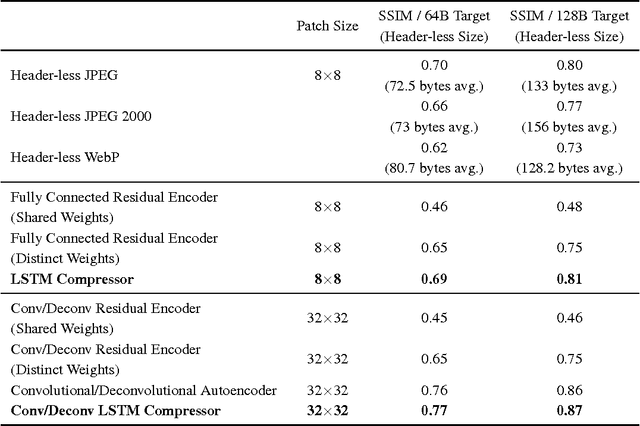Sean M. O'Malley
Variable Rate Image Compression with Recurrent Neural Networks
Mar 01, 2016



Abstract:A large fraction of Internet traffic is now driven by requests from mobile devices with relatively small screens and often stringent bandwidth requirements. Due to these factors, it has become the norm for modern graphics-heavy websites to transmit low-resolution, low-bytecount image previews (thumbnails) as part of the initial page load process to improve apparent page responsiveness. Increasing thumbnail compression beyond the capabilities of existing codecs is therefore a current research focus, as any byte savings will significantly enhance the experience of mobile device users. Toward this end, we propose a general framework for variable-rate image compression and a novel architecture based on convolutional and deconvolutional LSTM recurrent networks. Our models address the main issues that have prevented autoencoder neural networks from competing with existing image compression algorithms: (1) our networks only need to be trained once (not per-image), regardless of input image dimensions and the desired compression rate; (2) our networks are progressive, meaning that the more bits are sent, the more accurate the image reconstruction; and (3) the proposed architecture is at least as efficient as a standard purpose-trained autoencoder for a given number of bits. On a large-scale benchmark of 32$\times$32 thumbnails, our LSTM-based approaches provide better visual quality than (headerless) JPEG, JPEG2000 and WebP, with a storage size that is reduced by 10% or more.
 Add to Chrome
Add to Chrome Add to Firefox
Add to Firefox Add to Edge
Add to Edge